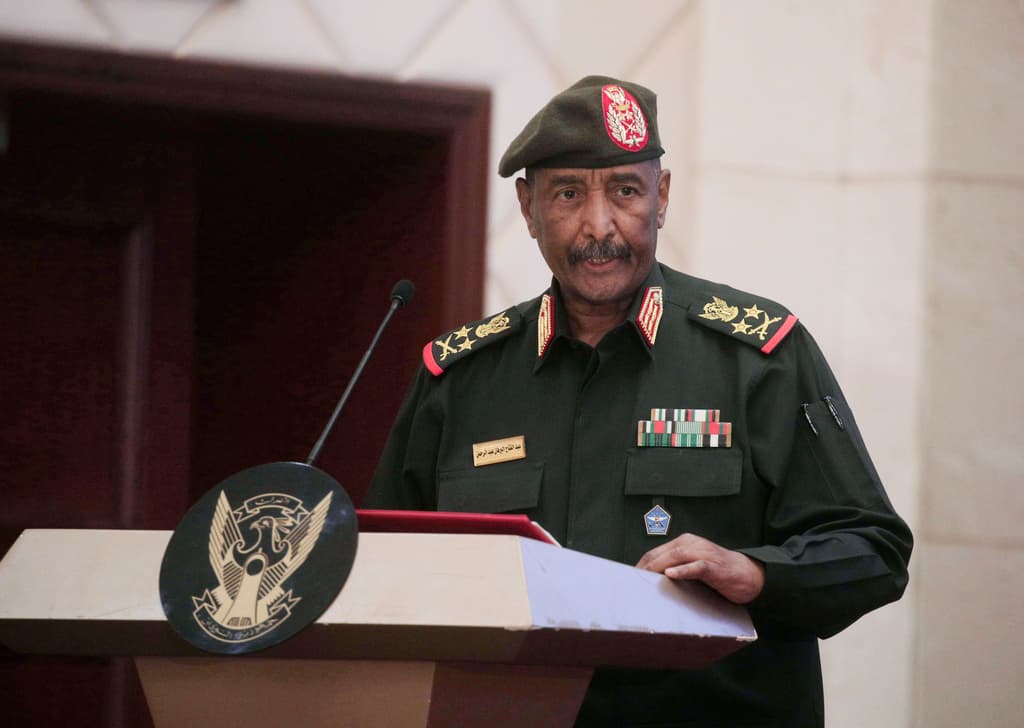In Sudan, Washington Needs To Settle on a Side
While neither of the rival warlords is exactly savory, the Biden administration would be wise to pick ‘our SOB’ instead of focusing so much on diplomacy and mediation.

With Monday’s Washington-mediated ceasefire in Sudan hardly expected to last, is it time for America to drop failed mediation attempts and instead pick “our SOB”?
It is beside the point whether President Franklin Roosevelt actually said that Nicaragua’s dictator, Anastasio Somoza Garcia, “may be a son of a b—, but he’s our son of a b—.” That’s because in the mid-20th century, picking and backing “our SOB” from among a bunch of unsavory characters was a widely accepted American foreign policy principle.
No longer. Washington nowadays is much less interventionist than it was in the heyday of CIA-backed meddling in Latin America and elsewhere. For President Biden, diplomacy and mediation are all the rage, while hard-nosed, interest-driven policies are frowned on as part of a neanderthal past.
This may explain the insistence on endless mediation between two Sudanese warlords who would rather finish each other off than stop fighting. The army chief, General Abdel Fattah al-Burhan, and a militia leader, Mohamed Hamdan Dagalo, have been at each other’s throats since mid-April.
The people of Sudan are caught in the middle, as food, medicine, and cash have all but disappeared. Millions are trying to escape the horrors. Several past ceasefire attempts helped give time to evacuate American diplomats and other foreigners from Khartoum. Yet, the shooting never significantly abated.
A month into the fighting between the two warriors, “I don’t see any of them ready to give up, they’re not there yet,” a former Israeli ambassador to South Sudan, Haim Koren, tells the Sun. A veteran of negotiations in the region, he says that successful mediation would take months or longer to succeed, if at all, and it might bear fruit only once one of the sides, or both, are exhausted from fighting.
The latest, weeklong ceasefire agreement was to take effect Monday evening. Shortly before the deadline, General Burhan’s army conducted air raids over Khartoum, targeting vehicles belonging to the Rapid Support Forces, the militia led by General Degalo, who is widely known as Hemedti. Fighting in the western region of Darfur is raging even after the agreement.
Washington was quick to take credit for the pact. Over the weekend, “the Kingdom of Saudi Arabia and the United States announced that the Sudanese security forces agreed to a short-term ceasefire and humanitarian arrangement,” the American ambassador at the United Nations, Linda Thomas-Greenfield, told the UN Security Council Monday.
As implementation is widely expected to be short-lived, the most impressive accomplishment of the agreement seems to be that Washington and Riyadh were able to co-sponsor it. Working together on a Sudan ceasefire is seen mainly as a rare, and positive, respite in the endless sniping between Mr. Biden and the Saudi crown prince, Mohamed bin Salman.
Like Egypt and several other Arab players in the region, Saudi Arabia would love to see General Burhan emerge victorious from the Sudan bloodbath. Unlike them, the United Arab Emirates has long been supportive of General Degalo, whose RSF militia members were sent to Yemen to fight against the Iranian-backed Houthis.
Another Hemedti ally is the Wagner group, the Russian mercenaries under the command of Yevgeny Prigozhin. Wagner has been active in the gold-rich Darfur region, where Hemedti, a native of the region, is based. Businessmen allied with Mr. Prigozhin control much of the mining, helping to finance Wagner’s and Russia’s war efforts in Ukraine.
In the early 2000s, the Darfur militia Hemedti commanded, known as the janjaweed, was most identified with what President George W. Bush called genocide against the region’s tribes. Ruthlessness and cruelty helped along the militia leader’s meteoric rise in the army chain of command.
It also introduced Hemedti to his blood rival, General Burhan, who was dispatched by President Bashir to oversee the suppression of the Darfur insurrection. Mr. Bashir was indicted by the International Criminal Court on war crimes charges, while General Burhan, and even more so the janjaweed under Hemedti, were just as complicit.
The two generals eventually overthrew and incarcerated Mr. Bashir. Their promise of a transition to an elective democracy never materialized, and now they’re fighting each other for control of the country.
America “stands with the people of Sudan as they push for freedom, peace, and justice under civilian democratic rule,” Ms. Thomas-Greenfield told the UN on Monday. “We continue to send a clear message to Sudanese security forces: End this senseless conflict once and for all.”
A more realistic approach would be to help end the fighting by backing a winning horse. While there are no angels in Sudan, General Burhan is clearly the lesser of the two evils. He is tied, for one, to Washington’s Arab allies, rather than to the unsavory anti-American Wagner group.
The war in Sudan will likely end only when one side wins and the other loses. Rather than endlessly going back to the hopeless mediation track, America would do well to back a winner — and turn General Burhan into our SOB.

